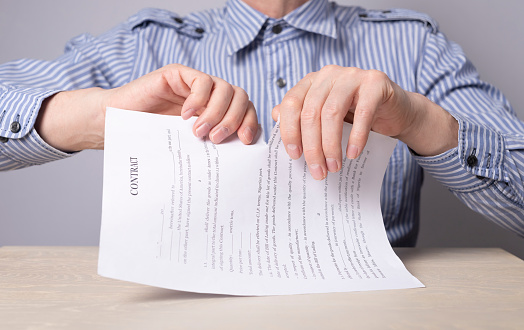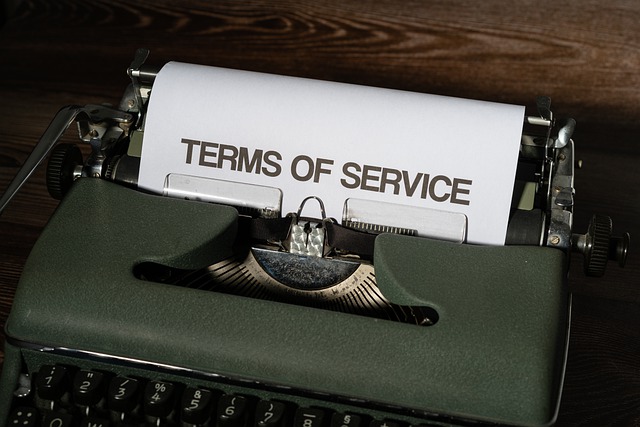How to Manage and Solve Commercial Disputes

A commercial dispute is a business-related disagreement between two or more parties due to either mismanagement of resources, common misunderstandings, or failure to adhere to the terms and conditions. In business, it is inevitable to experience conflicts because when two individuals choose to come together, their approaches to certain entities might differ. While this crash might lead to a sudden fall, finding a way to solve it requires your ultimate concentration.
Because partnerships can diverge, discrepancies can heat up, and discrimination can occur in any business environment, it serves you best if you prepare earlier or solve it before it gets beyond repair. This article will provide practical tips for managing and solving commercial disputes.
What Causes Commercial Disputes?
The following reasons might result in commercial disputes:
Contract Violation
This may also be termed a breach of contract. You will sign contracts with other companies to further your growth when in business. These might include vendors, licensees, employees, and other business partners. While every human errs, disputes might arise when some fail to keep their promise, some of which might lead to courtroom litigation.
It doesn’t have to go that far, especially when the dispute was based on minor misunderstandings. There are many instances where one is falsely accused of breaching the contract out of jealousy from fellow counterparts.

Read: Why Renting a Company is Trending in 2022
Other Matters That Could Involve Legal Action
In most cases, these issues affect an individual company. After signing a contract, an employee is expected to adhere to the terms and conditions of the given company, failure to which the employer is eligible for a court hearing. While they may not always follow these regulations to the latter, these conflicts might arise. Examples of these issues would be compliance issues, VAT discrepancies and even breaches of contracts.
Another instance is when your subordinate staff is accused of engaging in unfair or discriminatory affairs. This can lead to conflicts that, if uncontrolled, might result in litigation. Before this happens, ensure you have a carefully crafted list of agreements coupled with the consequences of breaking each to help you mitigate the impact of employment disputes while preventing them from happening.
Intellectual Property Infringement
This involves the violation of an intellectual property right. These may be triggered by creating a third-party’s image, trademark, logo, or design without their permission. According to the law, violating the Intellectual Property Rights (IPR) attached to any piece of intellectual property is illegal. Avoid landing yourself into such disputes by seeking their approval first.
Depending on the nature of the violation, penalties for intellectual property infringement might include payment of civil damages caused, an injunction to stop the infringement, payment of the attorney’s fees by the infringer, and felony charges with prison times. Litigation could also be the result of this.
How To Solve Commercial Disputes
As stated above, commercial disputes might be avoided. Understanding the causes of such disputes will help you avoid them in the first place. Since these issues are sometimes uncontrolled, there is a need to address the possible solutions. The following checklist will help you manage and solve commercial disputes:
Read: The Hidden Value of a Notary For your Business
Have A Proper Knowledge Of The Contract Before Signing
Sometimes your aim might shift to small or add-ons like the quantity, price, and delivery dates that you forget about the most crucial issues that could land you in trouble when the law is involved. When the deal looks too good to be true, think twice. Don’t rush into signing a contract before going through it. It is also important to read and agree to it yourself instead of having someone else do that for you. Never wait until a dispute arises to check on the details of the contract.
Have A Checklist Of Relevant And Practical Terms And Conditions
Ensure that these terms and conditions apply to your contracts. Prepare detailed paperwork to help you and the parties responsible understand the requirements and consequences where the terms are not adhered to.

Understand The Legal Rights Of The Other Party
You could be dealing with private business partners who are strict about what they do. It would help if you understood their legal rights and avoided intentionally violating any. Moreover, your options for pursuing a claim depend on your opponent’s legal status and asset position.
Preserve The Relevant Pieces Of Evidence Of That Agreement
A dispute may have arisen many years before the legal action is taken. It helps if you have tangible evidence against your opponent in such an instance. The longer it takes for the hearing to take place, the higher the risk of losing that evidence; keep it in a folder that is dormant, one that is not busy, to avoid mistakenly deleting the file.
Read: What Made Apple? 5 Big Success Strategies
Check On The Insurance And Funding Of Both Parties
It is important to calculate the cost of whether one insurance will cater to the costs or not since long-running litigation is quite expensive.
Take Personal Guarantees Where Necessary
Suppose you discover that your opponent does not afford the possible liabilities. In that case, you’ll solve a commercial dispute by asking for personal guarantees from the company’s directors or other third parties.
Other crucial steps for managing or solving disputes include:
- Reviewing the terms of the agreement and how clear they were. Clarify how the other party has failed to live up to the requirements. Address to what extent you may have contributed to this.
- Assessing losses in the process and weighing the possible loss other parties might claim to have.
- Using witness statements, written contracts, and correspondence to collate evidence.
- To avoid litigation, try to negotiate an amicable solution. Keep those negotiations safe for future reference or to use them as evidence. They might be in the form of written copies of letters and forms of negotiation or audio recordings in case they fail to keep their word
- Tracking cases and legal procedures as the case proceeds.
The Bottom Line
Commercial disputes can go to greater extents and lead to a great loss. Some issues might destroy your and your opponents’ reputations, especially when legal actions like litigation are taken. While this might be costly, solving it correctly might help you avoid incurring such costs. This article has outlined practical steps to help you manage and solve commercial disputes. Following these steps will help you retain your company’s reputation and your opponent’s.
Related Articles:
How to Register a Free Company in Holland
Virtual Ways to Ensure your Business in Compliant in 2022
5 Key VAT Disputes and How to Avoid Them




